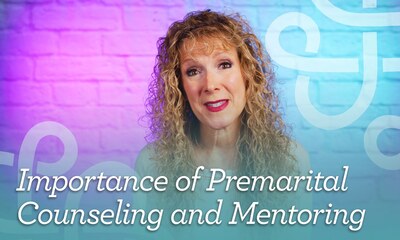Choosing a Premarital Counselor

More and more of today’s engaged couples are seeing the benefits of saying, “I do,” to premarital counseling and education. In fact, research shows that couples that seek out premarital education enjoy a 30% lower chance of divorce than the couples who do not. But before heading out the door to your first appointment, you need to consider the importance of whom you choose to counsel you.
...couples that seek out premarital education enjoy a 30% lower chance of divorce than the couples who do not...
Here are eight steps to help you choose the right counselor for you:
1. Clarify your expectations.
Think about and clarify your expectations. Talk with your fiancé about what each of you would like to accomplish through your premarital education and what you hope the experience will be like.
2. Choose a counselor that shares your faith.
This will greatly impact the advice and guidance they provide. You want someone who not only respects your faith, but also really “gets it” when it comes to applying it to real-life situations.
3. Look for a counselor with professional training.
Your next-door neighbors may be happily married for 15 years, but that does not make them a strong resource for premarital counseling. Check out the educational backgrounds of premarital counselors you are considering. Look for someone that has professional training as an MFT (Marriage and Family Therapist) or certification as a premarital counselor. Many therapists and counselors specialize in premarital counseling. They will be knowledgeable in the latest marital research, in important topics to cover, in appropriate assessments to administer and the questions to ask during your counseling time together.
4. Look for a counselor with experience.
A counselor that has worked with numerous couples will have a stronger background of history and experience from which to draw than someone that has only worked with one or two couples.
5. Ask for recommendations.
Look online for local resources. Ask your friends, relatives, or your pastor whom they would recommend.
6. Check office hours and locations.
Select a premarital counselor with convenient office hours and locations. This will be important as you and your fiancé try to fit regular counseling sessions into your schedules.
7. Ask about the counseling process.
The premarital counselor should explain his or her typical plan. Ask for an explanation of how the counseling works. You will want to know how often you will see the counselor, how long the sessions will last, and what to expect when you are there. Some counselors will do an initial assessment and then work towards goals. Others will have a certain set of topics they feel must be covered and then will ask about additional topics you as a couple would like to address. Others dive right into current weaknesses and issues you are having as a couple. Make sure you are both comfortable with the expectations and direction of the counseling.
8. Ask for the counselor's fee.
Ask the counselor how much they charge for each session, if insurance is accepted, and how they expect to be paid. Be realistic about your budget and address any limitations. Usually new counselors, counselors working towards their graduate or post-graduate degrees, or certified counselors will charge less than those who have been practicing for a long time. Some counselors associated with a church often times provide their services for free or a reduced rate.
Choosing the right premarital counselor can make or break your premarital experience, as well as have an incredible impact on your future marriage. If you remember these tips when seeking out counseling, you’ll be on your way to seeing the true benefits of saying, “I do.”


